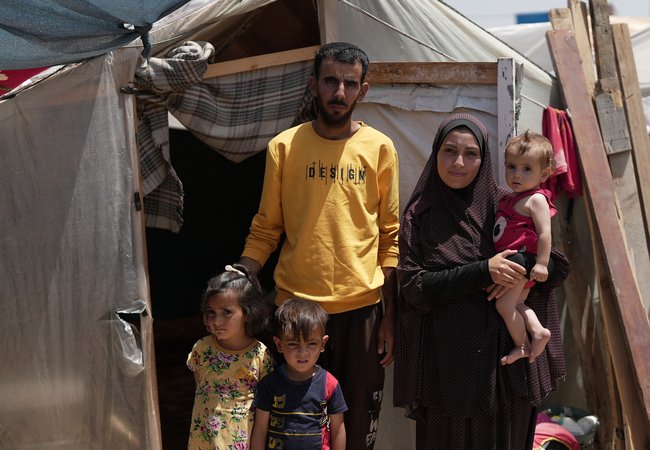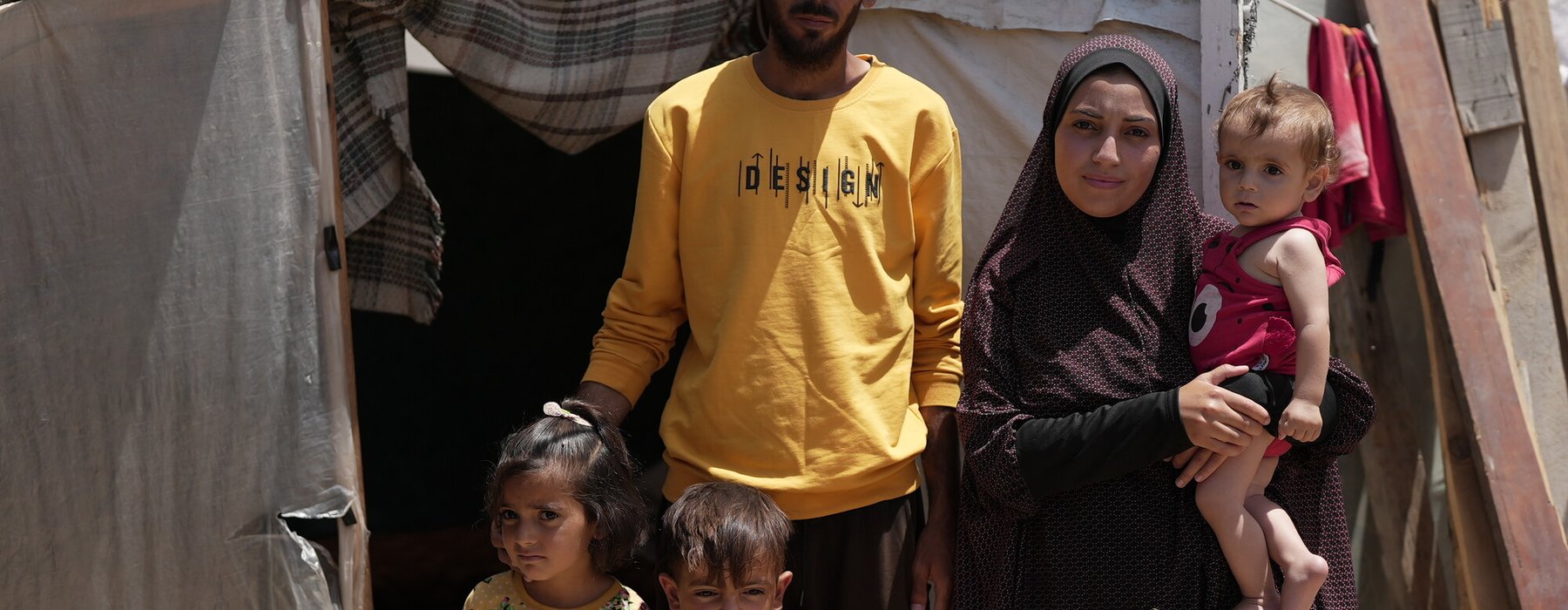Across Khan Younis and the rest of Gaza, the stench of raw sewage and stagnant water is overpowering, filling the air with a nauseating reminder of a deadly crisis.
With the threat of an epidemic looming large, Gaza has descended into a nightmarish landscape of insect and disease-ridden swamps and poisoned wells.
The sight of rivers of human waste flooding the streets and families forced to drink polluted water speaks volumes about a humanitarian catastrophe that is both deliberate and devastating.
Since October 7, 2023, following the attacks by Hamas and other Palestinian armed groups, Israel has tightened its 16-year blockade on Gaza, transforming it into a ‘total siege’ that strangles the flow of essential resources – food, water, and electricity.
This is not a mere consequence of conflict but a calculated strategy to destroy civilian infrastructure, inflicting unjustifiable suffering and the collective punishment of people in Gaza.
Gaza’s infrastructure has been reduced to ruins by relentless bombardments. Every three days, five water and sanitation sites are destroyed. All wastewater treatment plants have been wiped out and 70 percent of sewage pumps are in ruins. Gaza City alone has lost nearly all its water production capacity.
Of the 32 projects designed to deliver clean water and sanitation run by Oxfam and our partners, 12 have been severely damaged. 11 of these are now out of service, with five suffering moderate damage and six either severely damaged or entirely destroyed. Before the bombardment, these projects provided daily water and sanitation services to approximately 180,700 people. The loss of these facilities is a direct blow to the already fragile lifeline that families depended on.
The deliberate obstruction of humanitarian aid further exacerbates the crisis, blocking crucial supplies such as water desalination units and repair materials indefinitely.
This targeting of Gaza’s water and sanitation infrastructure, compounded by the cutting off of Gaza’s water supply and the obstruction of aid, has caused the water supply to plummet by a staggering 94 percent. The residents now survive on a mere 4.74 litres of water per person per day, far below the 15 litres needed for basic survival – and less than a single toilet flush.
Preventable waterborne diseases now afflict over a quarter of the population. Parents like Wafaa live in constant fear, unable to shield their children from the dire conditions imposed upon them.
Duaa Abu Sabha, who has been living in a tent in Khan Younis with her three children since December, summarises the bleak situation, saying: “I fear for my children from disease. I say: We didn’t die from the shelling and fear; we die from diseases coming from the sewers, and mosquitoes.”
This outright assault on the basic necessities of life has plunged Gaza into a humanitarian abyss.
Of course, this isn’t just a humanitarian issue; it’s a deliberate, cruel act that defies international law, with the use of water as a weapon representing a flagrant breach of international humanitarian standards.
The evidence is clear: Israel’s policies in Gaza are a brutal, disproportionate attack on civilians, aimed at depriving them of essential resources.
And the UK’s role in this suffering up until this point cannot be ignored. By continuing arms exports to Israel, the UK is directly fuelling this humanitarian disaster. With the new UK Government in place, now is the time for a reset of UK policy on Gaza.
The Foreign Secretary, David Lammy, has the opportunity to go further than simply repeating his welcome call for an immediate ceasefire and use all the levers at his disposal to help make one happen, including immediately suspending all arms sales to Israel.
Ending arms sales is one step towards helping secure a ceasefire, and to allow a full and unfettered humanitarian response including provision of life-saving water supplies, as well as the safe release of all hostages.
The world is watching, and history will judge the new UK Government by its response to this crisis. The choice is clear: choose to uphold international law, choose compassion, justice, and humanity, or bear the shame of complicity in one of the most egregious humanitarian crises of our time.
The people of Gaza are in desperate need of a lifeline, one that delivers not just water, but hope, humanity and a lasting and just peace for all. They simply cannot wait any longer.
This article originally appeared in The National.


